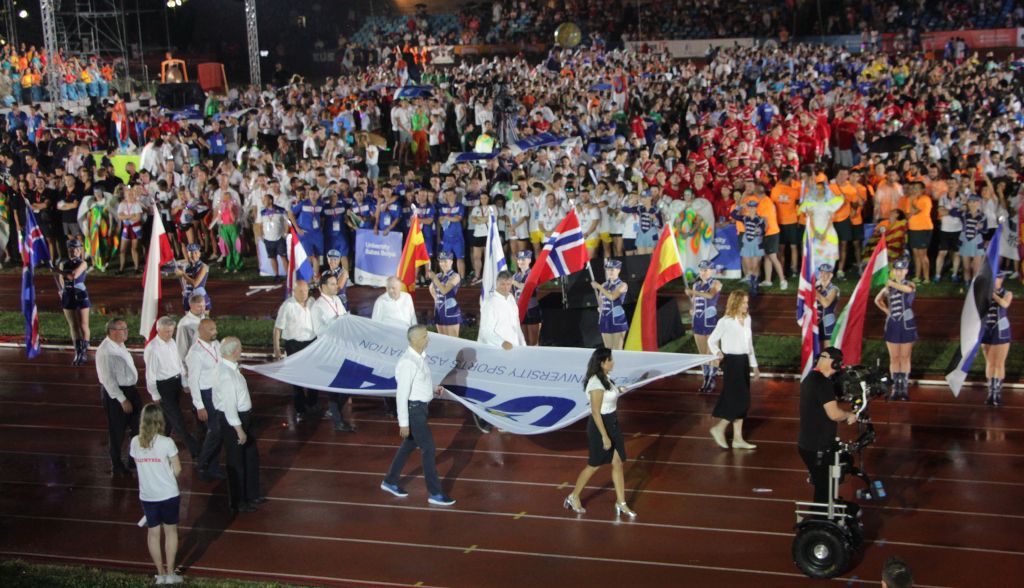The biggest and most important academic sport event in Europe has its origins in Cordoba. It was in this Spanish city where the first European Universities Games (EUG) organised by the European University Sports Association (EUSA) took place in 2012. During the inaugural Universities Games, students competed for medals in 10 disciplines. Taking place every two years in different cities of the Old Continent, the EUG has seen the number of competitions and athletes grow steadily, and the Games have become a landmark on the map of sporting events for students from all over Europe. Next year, students will come to Lodz for the EUG 2022.
Cordoba 2012
It was decided in March 2010 at the EUSA Executive Committee meeting in Vilnius that Cordoba would be the place to consolidate the recent history of academic sport on the European continent. The Spanish city won the rivalry between the Portuguese capital Lisbon and the city of Lodz in Poland and thus forever entered the map of places where student-athletes began their struggle to climb the winning podium, at one of the few multisport events outside the Olympic Games.
In 2012, in Cordoba, organisers prepared 10 sport disciplines for participants. Students competed in basketball, beach volleyball, badminton, football, futsal, table tennis, tennis, handball, volleyball and rugby. 2583 athletes from 131 universities from 32 countries participated in the EUG 2012. Among them there were 21 teams from Poland. The most numerously represented teams were from Spain (33 teams) and Portugal (27 teams). However, the largest number of participants, as many as 460 players, competed on the football pitch. In futsal, handball, volleyball and basketball, 300 athletes each represented their universities.
The basketball players from Adam Mickiewicz University Poznan were unbeatable, taking the first place on the podium. In turn, the title of best basketball players went to the men from Vytautas Magnus University in Lithuania. In rugby sevens, France dominated the field. The gold medal went to the students of the French Universities of Pau and Adour and the female students of the University Paris 13. France also did well in tennis. Two French teams advanced to the men’s final and the gold medal was eventually claimed by the University of Rouen.
In women’s tennis, the championship was won by players from the Moscow State University of Economics, Statistics and Informatics (MESI). In women’s football, France was again on the winners’ podium, with gold won by the University of Toulouse III. The men’s competition was won by Turkey’s Haliç University. Russian teams also did well in table tennis. The Russian State University for the Humanities won in the women’s tournament but was defeated by the men’s team and the first place of the podium went to Rzeszow University of Technology from Poland. In women’s handball, another Polish university, the Vincent Pol University in Lublin, won and in men’s handball the Georgian Technical University won.
After 12 days of competition and a total of 677 matches played, the University of Cordoba – organiser of the inaugural EUG – had a reason to celebrate. The university had paved the way and proved that launching the European Universities Games was a hit. In July 2012, Cordoba became the European capital of academic sport. During the closing ceremony of the EUG 2012, to the sound of the anthem Gaudeamus Igitur, the Cordoba organisers symbolically handed over the EUSA flag to the EUG 2014 committee from Rotterdam in the Netherlands.
Rotterdam 2014
The second European Universities Games took place in exceptional circumstances. 2014 marked the 100th anniversary of Erasmus University Rotterdam, the organiser of the event, and the 15th anniversary of EUSA. The event attracted a total of 2830 participants from 280 teams, representing 174 universities from 34 European countries. The Games included a wide range of competitions in 10 different disciplines. Students competed in badminton, basketball, football, futsal, handball, rugby 7, table tennis, tennis, volleyball and, for the first time at the EUG, rowing. Fourteen countries entered the latter discipline, with most of the athletes arriving for the games just after the U23 World Championships in Varese, Italy.
Poland was represented by a 115-strong team, which took part in six disciplines (Poles were missing in basketball, football, rugby 7 and rowing). The athletes from Poland won 16 medals: 3 gold, 5 silver and 8 bronze medals, being most successful in table tennis and badminton and handball. The success of the previous EUG in Cordoba was repeated by the handball players from the Vincent Pol University in Lublin, who won the gold medal. Just as two years earlier during the Universities Games in Spain, Rzeszow University of Technology from Poland was the winner in table tennis.
The mascot of the event – Roffa – followed the competitions in all ten sports closely throughout the Games and was enthusiastically received wherever it appeared. The song ‘Bring it on’ was written especially for the EUG 2012 in Rotterdam. Giovanni van Bronckhorst, the famous footballer and former captain of the Dutch national team, held the honourable position of sports ambassador of the Games.
The event featured a series of masterclasses, workshops and debates led by interesting speakers. Topics covered included equality, disability, city marketing, youth employment, LGBT issues, elite sport and education or sport and new media. An exhibition on academic sport was also opened during the event.
EUG 2014 ended with the basketball finals. The games attracted more than 1,000 spectators and the event was concluded during a short closing ceremony, which started with a march of volunteers representing university teams from the 34 participating countries. The closing ceremony in Rotterdam was marked by a dance show combined with a film presentation from the event.
Zagreb/Rijeka 2016
The European Universities Games in the Croatian cities of Zagreb and Rijeka set an EUG attendance record. Over 5,000 students representing more than 400 universities from 40 European countries came to compete. Participants competed in 21 disciplines. Athletes competed for medals in badminton, basketball, 3×3 basketball, beach volleyball, bridge, chess, football, futsal, golf, handball, judo, karate, rowing, rugby 7, sport climbing, swimming, table tennis, taekwondo, tennis, volleyball and water polo. At EUG 2016, students with disabilities competed for the first time in the history of EUSA sporting events. They competed for medals in para swimming and para table tennis.
The Games officially started at the packed Mladost stadium in Zagreb with a grand opening ceremony. The participants and organisers of the 1987 FISU Summer Universiade carried the flag of the European University Sports Association (EUSA), handing it over to the Croatian sports champions.
Out of a total of 618 medals, a large part remained with the EUG 2016 hosts University of Zagreb (65 medals), 21 medals were won by students from Split University and 18 from Rijeka. Right after that were students from the University of Valencia with 16 medals and from the Urals with 15 medals.
As in previous European Universities Games, the sporting competitions were preceded by an appropriate educational programme and the central event was the Rectors’ Conference, which took place in Opatija and Rijeka with a conclusion in Zagreb, where a memorandum of understanding in academic sport was signed.
Coimbra 2018
Coimbra 2018 was the fourth edition of the EUG. For the Portuguese, it was the biggest and most important sporting event since 2004, when they hosted the football European Championships. The event was co-organised by the Federation of University Sports of Portugal (FADU), the city of Coimbra and the UNESCO World Heritage-listed University of Coimbra, the oldest in Portugal and one of the oldest in the world. More than 4,000 participants came to the EUG 2018, representing almost 300 European universities from 38 countries. Student-athletes competed in 13 disciplines. They competed in 9 compulsory disciplines (futsal, football, basketball, 3×3 basketball, volleyball, handball, badminton, tennis and table tennis) and 4 additional ones (rowing, rugby 7, judo and para table tennis). The showcase discipline was classical canoeing.
The British won the national classification with 9 gold, 8 silver and 6 bronze medals. Second place went to the Germans and third to the hosts. With 16 medals, including five gold ones. Poland was classified fifth in the national ranking. Four gold medals and victory in the national ranking on the tatami were provided by Poland’s judokas.
In the university medal ranking the victory was secured by the hosts of the Games, the University of Coimbra. In second place was the Georgian Technical University, and in third place the University of Strasbourg.
Outside the arenas of sporting competition, the EUG 2018 addressed topics related to the educational and social aspects of academic sport in Europe. Conferences and workshops spoke about anti-doping measures, social integration and dual careers combining science and sport.
Belgrade 2020
If the world had not been hit by the coronavirus pandemic that caused the cancellation or postponement of all international sports competitions, the Serbian capital Belgrade would have been the centre of sporting events on the Old Continent in 2020. EUG in Belgrade have been moved to July 2021. However, successive waves of the pandemic thwarted the organisers’ plans. European Universities Games in the Balkans were not cancelled. The hosts of the fifth EUG together with EUSA are expected to announce another date for the competition.
According to the original plan, the EUG in Belgrade is scheduled to start with an opening ceremony at the Stark Arena, the largest venue of its kind in the Balkans. The organisers are expecting more than 5000 students, representing 400 universities from 40 European countries. Athletes will compete in 19 disciplines across 28 sports venues.
We are keeping our fingers crossed for the success of the EUG in Belgrade!
Lodz 2022
“Lodz We Can!” – this is the slogan under which the 6th EUG will be held in Lodz, Poland. A local committee established at Lodz University of Technology has been working on the organisation of the Games since September 2020.
There will be no shortage of sporting challenges during the Lodz EUG 2022. Student-athletes will compete in 15 competitions. The programme of the Games includes: volleyball, beach volleyball, basketball, 3×3 basketball, badminton, football, tennis, handball, beach handball, table tennis and para-table tennis, water polo and chess. The arenas of the Games will be 20 sports facilities in Lodz. Part of the competition is planned to take place in the Sports Bay of Lodz University of Technology, which has the only indoor swimming pool of Olympic dimensions in the region, where – apart from swimming – water polo competitions will be held. The so-called “dry zone” will also be used for basketball, futsal and sport climbing competitions. The competition will also take place on the premises of the University Sports Association. An opening ceremony is planned at the Atlas Arena in Lodz.
From 16 to 30 July 2022, students from all over Europe will compete for medals in the city, which is one of the largest academic centres in the country. Approximately 65,000 students study at 19 universities in Lodz, including more than 12,000 at Lodz University of Technology. Students and graduates of Lodz University of Technology can be proud of medals in many sports disciplines.
Recruitment of volunteers will start in autumn. Around 800 voluntary workers will help at the EUG 2022. At the end of this year, the registration of participants will begin.
The EUG is about sport, learning and integration
The European Universities Games have evolved over the years. In addition to new sports disciplines enriching the range of competitions and the introduction of a couple of disciplines, the EUG programme has been diversified with events important for the academic community. Conferences, lectures and workshops have addressed the topics of combining science and sport, dual careers, gender equality, new technologies in education and sport or LGBT issues. The Rectors’ Conferences, in turn, are an opportunity to exchange views, thoughts and to search for new solutions in education.
The organisation of the EUG in various European cities has become a way to promote the idea and spirit of academic sport. Sport champions have started to get involved in promoting the values of the Games. Titled sportsmen and sportswomen will be the ambassadors of Lodz EUG 2022. They will serve as an example that the way to the top and reaching for victories starts at universities.
After only a decade, the EUG have become a prestigious, high-level sporting event awaited by students from all over Europe. Today, the European Universities Games have the status of the biggest and most important academic sport event on the Old Continent, and the participants of the EUG are ambassadors of academic culture and spokespersons for the Olympic values in their countries.


